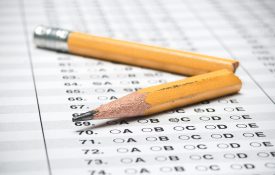-
Does Belief in Free Will Lead to Action?
Free will may be an illusion. Yet we persist in believing we are the masters of our fates—and that belief affects how we act. Think you determine the course of your life and you’re likely to work harder toward your goals and feel better about yourself too. Think you don’t, and you’re likelier to behave in ways that fulfill that prophesy. “Folk psychology tells us if you feel in control, you perform better,” says Davide Rigoni, an experimental psychologist now at the University of Marseille.
-
How comfort foods beat the blues
The Telegraph: It works by reminding people of their childhood actually fight feelings of isolation by making people feel like they belong. Psychologists at the University of Buffalo in the US wanted to find out if food could have a similar effect on people as watching their favourite television show or looking at photographs and mementos of friends and family. In one experiment, researchers tried to make some participants feel lonely by having them write for six minutes about a fight with someone close to them. Others were given an emotionally neutral writing assignment. Read the whole story: The Telegraph
-
Comfort Foods Help Alleviate Loneliness
Food Product Design: A new study in the journal Psychological Science suggests comfort foods can help fight loneliness. In the study, volunteers were asked to spend several minutes writing about a fight with a friend or loved one. Then, some in the study were either asked to write about their favorite comfort foods. Others were even served chicken soup if they had previously indicated they enjoy it. Read the whole story: Food Product Design
-
How even just thinking about comfort food is good for the soul
The Daily Mail: Comfort food may be bad for the waistline but it is good for the soul, say researchers. A study found that even thinking about mashed potato, chicken soup or chocolate pudding can combat loneliness. Read the whole story: The Daily Mail
-

Think You’ll Ace That Test? Think Again. Then Start Studying
How we feel when encountering information that we’re trying to learn biases our ability to predict what we’ll remember.
-
Not-so-abstract art
Science News: People who scoff that a child could have painted a splotchy, abstract piece of modern art see more in such creations than they realize. When forced to choose a favorite between a painting by a child, chimp or other animal and one by an abstract expressionist artist, people untrained in art usually picked the professional’s creation, even if it was mislabeled as that of a child or a non-human animal, say psychologists Angelina Hawley-Dolan of Boston College and Ellen Winner of Harvard University. Read the whole story: Science News

